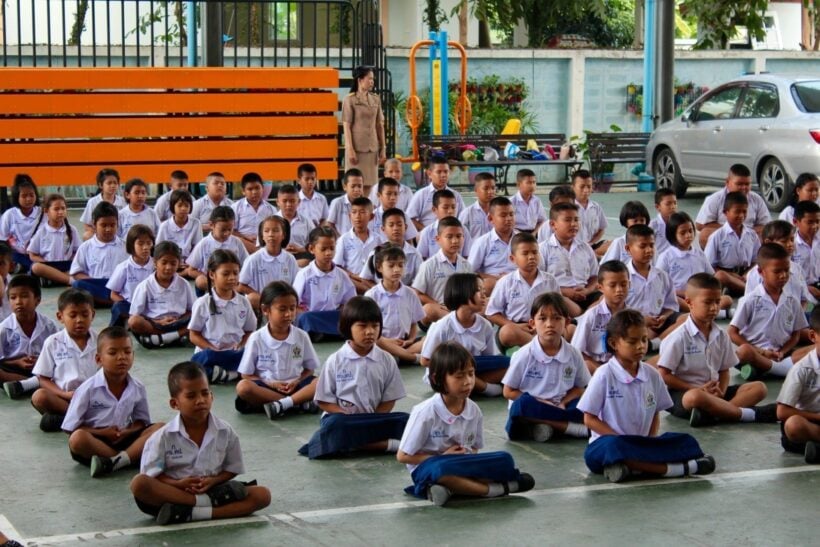Research shows home-learning causes 50% drop in mathematical ability among Thai students

Research shows that online learning causes a 50% drop in mathematical comprehension, and a 30% drop in reading literacy among Thai students. Research presented by the government’s Equitable Education Fund indicates that months of home-learning cannot match in-school study and in fact, can cause a deterioration in students’ ability. With schools currently closed in 28 Thai provinces, thousands of children across the country are participating in online learning.
According to a Nation Thailand report, Pumsaran Tongliemnak from the EEF says home-schooling with the use of screens also has a negative effect on students’ mental health and their social and emotional development. The research, carried out by the Northwest Evaluation Association, echoes a study done by Massachusetts’ Institute of Technology, which demonstrates that learning through technology is no match for the classroom. Home schooling has been shown to contribute to a decline in knowledge, as well as affecting access to quality nutrition, age-appropriate learning, and social experiences.
Pumsaran says inequality in Thai education is already evident among those who fall out of the education system, as well as the decline in learning and health development among disadvantaged children, those with disabilities or with special educational needs, and those living in remote parts of the country. He says online learning will only serve to widen the gap between rural children and those in the city by about 2 years, potentially leading to economic disparity and fueling a cycle of poverty for generations.
His colleague Kraiyos Patrawart says prior to Covid-19, inequality in education had improved in the last 3 years, in terms of absenteeism among the more disadvantaged students. But over 143,000 children living in poverty in the 28 “highly controlled” provinces, may end up missing 2 school semesters, equating to 40% of the school year.
“The biggest concern is children’s learning development and growth. We should make the most of the remaining 3 months (of the academic year) if schools can open as normal, with teachers checking students’ health and learning, running after-school programmes, and monitoring the gap of classes for children in remote areas.”
SOURCE: Nation Thailand
Latest Thailand News
Follow The Thaiger on Google News:


























